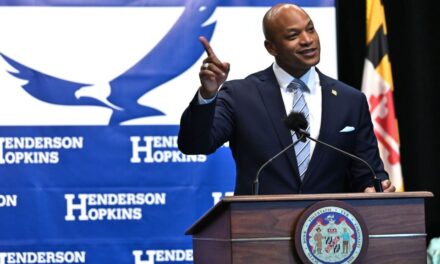By Rebecca Griesbach
AL.com
Gov. Kay Ivey announced this week that she will not devote state tax dollars to support Birmingham-Southern College, narrowing options for the private liberal arts school.
“The state has no plans to use the taxpayers’ public funds to bail out a private college,” spokeswoman Gina Maiola said in a statement to AL.com Tuesday.
The college has said it needs help to keep its doors open past this school year; officials revealed the extent of the school’s financial woes this winter.
Financial problems at Birmingham-Southern first emerged in 2010 when David Pollick, who had been president since 2004, resigned after a controversy over accounting errors, overspending and increasingly dire budget deficits.
Birmingham-Southern leaders asked the legislature in December for a one-time allocation of $30 million – as well as a combined $7.5 million in county and city funding.
But while the plan has garnered some support from lawmakers across the aisle, Ivey has been firmly against a state bailout.
Her office has denied at least two of BSC’s requests for pandemic relief money, and have not requested any additional funds out of the state’s Education Trust Fund to support the college, officials confirmed last week.
The Birmingham City Council also delayed a vote last week to approve its portion of the funding, citing little movement from the legislature.
“The main ask of Birmingham-Southern is to the state of Alabama, and without that main ask, it is something that probably the city would not be able to support,” councilman Hunter Williams told reporters last week.
‘Positive conversations’
The denial from Ivey’s office comes as legislators prepare to pass a record $8.8 billion education budget, plus an unexpected $2.8 billion in surplus receipts.
AL.com reported last week that Ivey’s supplemental proposal includes money for clear education programs, as well as a variety of multi-million dollar allocations for “economic development,” including a water park, money for the World Games, an airport and prison construction.
In a statement to AL.com Tuesday, a BSC spokeswoman said the surplus “has presented lawmakers with the opportunity to prioritize the use of this one-time money for the benefit of education in our state.”
“We have had positive conversations with legislative leaders and look forward to engaging in this process as it moves forward,” she said.
Lawmakers still have weeks left in the legislative session to suggest revisions to the budget before it passes. Sen. Rodger Smitherman (D-Birmingham), an early supporter of the request, said he’s still exploring all options.
“That’s why we have the process,” he said. “They’re saying that her office isn’t going to send over a request, and that’s understandable, but that doesn’t mean that the legislature is not going to consider and provide it.”
Smitherman said he’s planning to file a bill that would ask for a one-time allocation of at least $15 million for the school from the state’s supplemental education budget. He said he is also looking for other state funding sources to help meet the rest of the college’s $30 million goal.
“We’re just trying to look at different means and not just say it’s all or nothing for this one particular approach,” he said. “If we can get a collection of funds that we can come up to that point where we can save the school, it’s worth it.”
In a message to the campus community Monday, Rev. Keith Thompson, chair of the BSC Board of Trustees, encouraged students and alumni to continue pushing for state support while the college weighs its options.
“The BSC Board of Trustees faces making history-changing decisions that will impact the lives of so many people,” he said, noting that officials have been “encouraged” by recent developments in the legislature. “One of our biggest challenges is the need to make a decision soon versus the timing of the Montgomery budget process. Knowing whether BSC will receive one-time bridge funding from the state is vital information we need to make the best decision.”
The Board of Trustees will hold its next meeting on April 5.











